Kenmare Resources urges decision on Mozambique rights renewal
Illegal ruby mining in Mozambique: “There is no security deficit” – Samito Machel
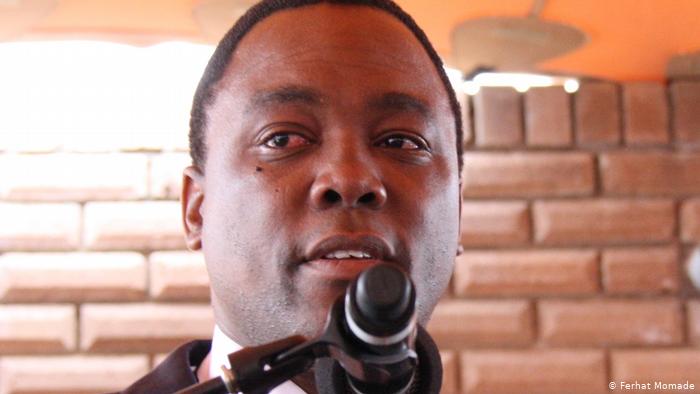
Samora Machel Jr., chairman of Montepuez Ruby Mining (MRM). [File photo: DW]
The chairman of the board of Montepuez Ruby Mining dismisses allegations of lack of security and denies that the attacks by illegal miners on the company’s concessions result from social exclusion in Namanhumbir, in the northern region of Mozambique, where the MRM operates.
In February, more than 800 illegal miners invaded the MRM ruby mining concession in Montepuez, in Mozambique’s northern Cabo Delgado province. One of the mine shafts collapsed, killing more than ten illegal miners and injuring several others.
As a result, Montepuez Ruby Mining, which is exploiting one of the largest ruby deposits in the world, located in Mozambique, issued a statement condemning the criminal syndicates it alleges recruit the poorest members of communities in province and elsewhere. According to MRM, these indicates involve their victim a cycle of debt, thus forcing them to work on their behalf.
The company is also concerned about the abject and unsafe working conditions in which these illegal miners operate. We talked about this and other related issues with Montepuez Ruby Mining chairman, Samora Machel Jr.
DW Africa: Has MRM already reported the results of its investigations to the police?
Samora Machel Jr. (SM): Yes. We are in constant contact with the authorities, in this case the police and the district administration, and even at provincial level. We have communicated all the steps we have taken in relation to the investigation process to the authorities so that this criminal ring of ruby smuggling can be dismantled.
DW Africa: And do you notice an interest and capacity to eliminate criminal syndicates and the crimes which take place within your concession?
SM: The PRM [Mozambican police] have done a positive job and it has worked. If you remember, about three years ago, the issue of illegal mining in our concession was very worrying. Since then, it has improved a lot. We had no such situations until a few days ago [when illegal miners died in a collapse in the MRM concession].
DW Africa: The conditions in which these illegal miners work or live are inhumane. Does MRM maintain any contact with the National Human Rights Commission? Has it denounced or reported these cases to the Commission?
SM: Communication there has not been so constant, but we have kept them informed, yes. We have drawn attention to what is happening.
DW Africa: Illegal miners have been invading your area with some frequency recently. Is there a security deficit in the MRM concession?
SM: No, there is no security deficit. What happened is that there was an invasion by many miners and they caught our relatively small security force unawares, and were very violent towards them. Also, we have to take human rights into account: we cannot just be violent back.
DW Africa: So the interests of MRM are not threatened by the invasion of illegal miners, because your security works well?
SM: Yes, it works well.
DW Africa: Aren’t your interests at risk?
SM: No, they are not at risk. We have already explained that and, there will certainly be a new report in the near future. This recent act was not carried out by the community from or surrounding our concession. The relationship with the community around us is very good. These are illegal miners who come from outside Namanhumbir, from outside Montepuez. Right now, we are carrying out, together with the authorities, a survey to identify the criminals, and some of them are being arrested [to answer for their actions].
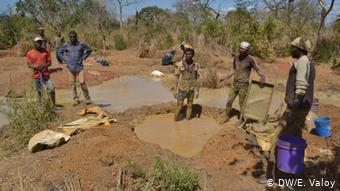
DW Africa: Some ruby miners accuse local leaders, including the police, of being involved in the illegal business. Are you aware of this situation?
SM: I know, yes. And, obviously, anyone whois involved will be prosecuted.
DW Africa: In your communique, you condemn the criminal syndicates, who use people in need to serve their interests. Can we somehow say that MRM is being victimised by the consequences of social exclusion?
SM: No, I cannot say that it is about social exclusion. As I said, we’ve been carrying out a lot of work on the dangers of illegal mining, and the evils it brings to a community: we’re talking about drugs, alcohol consumption, prostitution, the dependency of communities [on] these criminals.
DW Africa: The communities there must have difficulty accessing employment and training. They have no alternatives and therefore resort to this type of illegal activity. Illegal miners told DW Africa that they have no alternative but illegal mining which, in the medium term, may be an obstacle to the development of your activities …
SM: No, I wouldn’t say that, in the medium and long term, it would be an obstacle. We are currently working with the communities. It is true that the situation in the communities is precarious, there is a lot of poverty, there are employment problems. It will not be [Montepuez] Ruby Mining that solves the problem of employment for all the surrounding communities, but we are creating conditions for communities to be able to provide for themselves and develop through socio-economic activities.
DW Africa: What is the percentage of local labour in MRM?
SM: Ninety percent.
DW Africa: Does your company develop projects that benefit communities?
SM: We have several. We have associations of farmers and breeders of small animals and we intend, in the near future, to move on to processing these products. In all cases, MRM is the first to buy these products.
DW Africa: And are armed attacks a threat to MRM?
SM: I think armed attacks are a threat to all of society, and the MRM is no exception. We are located in this province, and any situation which develops into debacle is dangerous. We also suffer from this threat.
DW Africa: On this second point in your communiqué, on crime syndicates, could you give us more details on how they work? Were you able to identify the groups involved?
SM: I’m just going to tell you that we were able to identify the groups involved, but I’m not going to give more details.
DW Africa: Do the illegal miners who invade MRM come from other provinces in the country?
SM: They are mostly from Nampula and Zambézia provinces, but, obviously, there are also foreigners.
DW Africa: And the possibilities for these communities to take root there, is it very great?
SM: It will be, if we don’t do something. Right now, the MRM, local government, provincial and central government [all have to] act to stop this growth in crime in the ruby industry.
DW Africa: Isn’t the region where MRM is located practically a no-man’s land?
SM: It’s Mozambique’s land – it’s the state’s land. We, the MRM, are managing this area which has been granted to us to improve, and to bring added value to a product which belongs to the Mozambican people. More specifically, to the people of Mananhumbir.


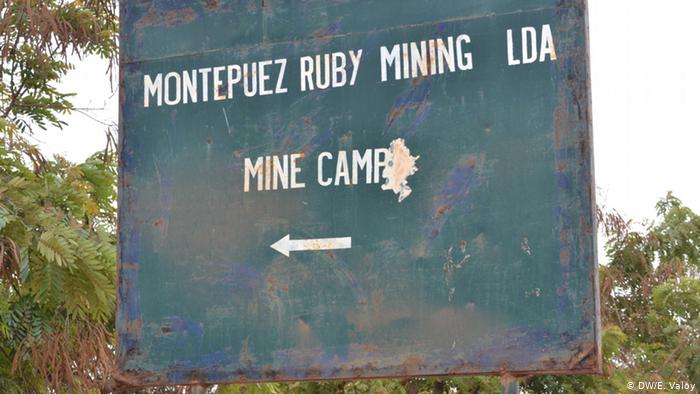




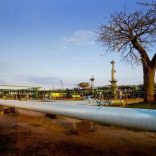
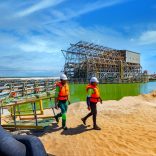





Leave a Reply
Be the First to Comment!
You must be logged in to post a comment.
You must be logged in to post a comment.